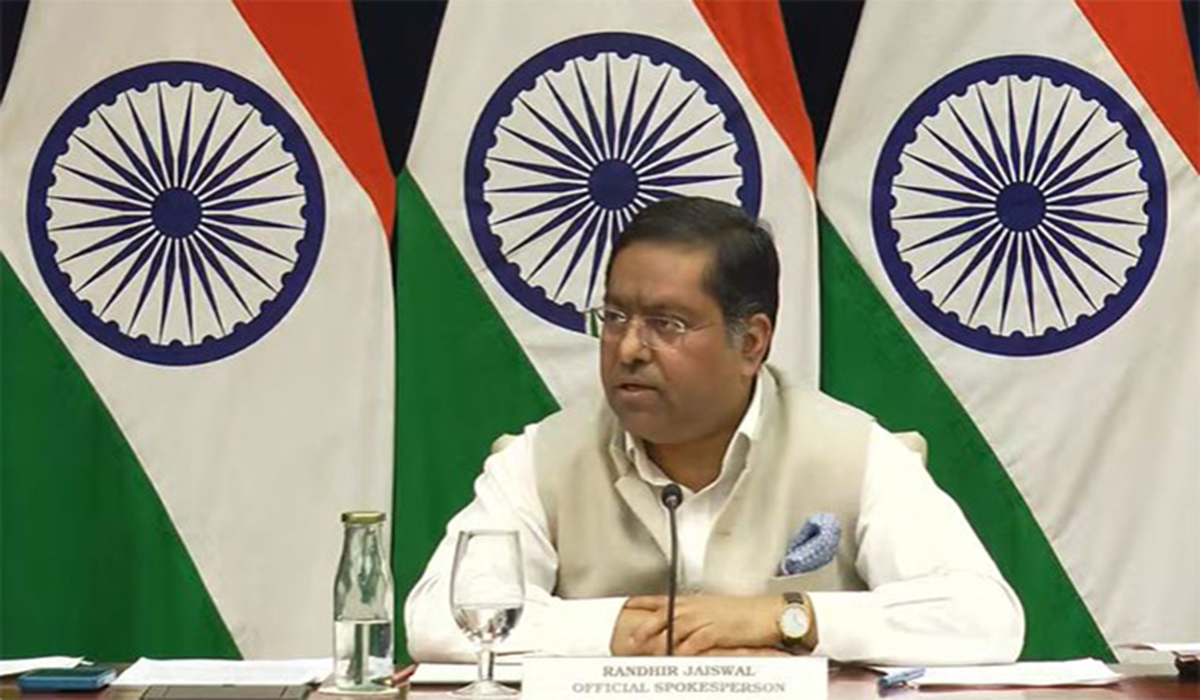
New Delhi: The Ministry of External Affairs (MEA) on Wednesday announced the withdrawal of the transshipment facility previously extended to Bangladesh, citing logistical challenges and congestion at Indian ports and airports.
Addressing the weekly press briefing, MEA spokesperson Randhir Jaiswal said, “The Transshipment facility extended to Bangladesh had over a period of time resulted in significant congestion at our airports and ports. Logistical delays and higher costs were hindering our own exports and creating backlogs.”
“The facility, therefore, has been withdrawn with effect from April 8, 2025. To clarify, these measures do not impact Bangladesh exports to Nepal or Bhutan transiting through Indian territory,” the MEA spokesperson added.
Notably, a 13-member delegation from Bangladesh visited India from July 9 to 12, 2024, to explore the possibilities of transhipment of Bangladeshi Exim cargo through Indian ports located on the East Coast. The delegation was led by S M Mostafa Kamal, Joint Secretary, Ministry of Shipping, Bangladesh, and included representatives from other key Bangladeshi ministries and ports.
Earlier, the Ministry of Ports, Shipping, and Waterways, in a release, said that Agenda no. 6 in the agreed minutes of SSLT was moved by the Indian side to facilitate Bangladesh’s Exim cargo through Indian Ports on the East Coast using the Coastal Shipping Agreement and Protocol on Inland Water Transit and Trade (PIWTT) Agreement between India and Bangladesh.
The Bangladeshi delegation had identified several bottlenecks in Exim trade using Indian ports. In response, the Indian side agreed to provide comprehensive data analysis and comparisons and demonstrated the benefits for Bangladeshi exporters and importers in using Indian ports over existing transhipment ports like Colombo, Singapore, and Port Klang.
During the press briefing, MEA spokesperson Jaiswal also raised broader concerns regarding bilateral relations with Bangladesh, particularly the treatment of minorities and issues surrounding the Teesta Water Treaty.
Speaking on the situation of minorities in Bangladesh, Jaiswal emphasised the need for urgent and firm action. “We have conveyed our concerns regarding the treatment of minorities, the kind of violence that has happened against them…These violence and atrocities against minorities cannot be wished away…We hope that the Bangladesh government will take strong action against those responsible for these atrocities,” he said.
Regarding the Teesta Water Treaty, Jaiswal reiterated India’s commitment to dialogue, stressing that such discussions must be based on mutual consent and a conducive environment.
“There are 54 rivers shared between India and Bangladesh. To discuss all relevant water issues, we have a mechanism, a bilateral mechanism, called the Joint Rivers Commission. We are ready to discuss all issues provided that they are mutually agreed upon and provided that the overall environment is conducive for the same,” he said.
